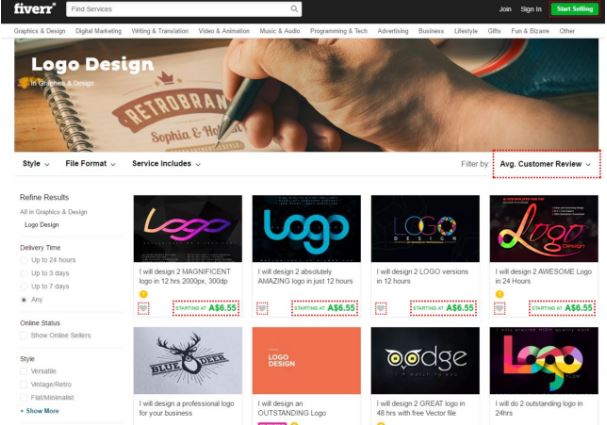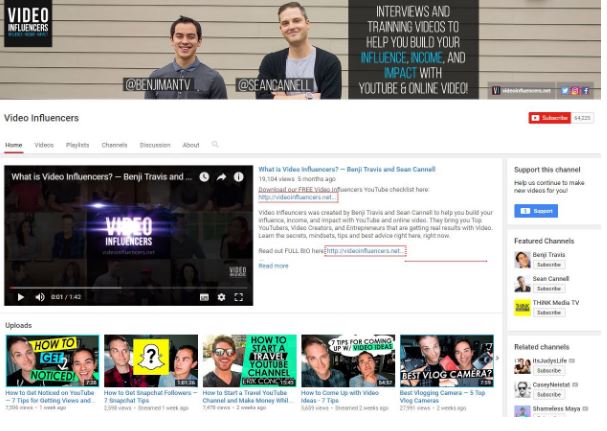So, you’re entering the world of business? Perhaps this is your very first outing, or perhaps you’ve had a crack at things before.
Whether you’re a fresh-faced beginner, or Richard Branson embarking on his latest business venture, there are some universal truths about getting set up in business which are going to be applicable no matter what. Marketing is a huge part of any new businesses strategy: the sooner you can get into the hearts and minds of your potential customers, the sooner you can start turning product into profit.
These are our top five tips to marketing for small business:
1. Social Media

This is going to make the list of any article about marketing in the 21st century. Few things are as pervasive in life today as social media is to billions of people. As of 2016, there are 2.3 billion active social media users. The chances are good that if you sell a product or service, the people interested in it will be on some form of social media. You only have to look at Coca Cola to see a brand that knows how to leverage social media.
However, you don’t get to be as influential as Coca Cola overnight. Startups need to consider a few factors before starting your social media campaigns:
- Create a social media strategy: Before you’ve started your campaign, think about a few things. What is the end game? What are you hoping to achieve from this campaign? What brand presence are you going to have? How can you tailor your message to your audience? Do you even know who your target audience is? What social media accounts do they use? Back in 2013, Forbes named brands such as Snapchat, Uber, Dropbox and Tinder as startups that killed it in 2013. In a few short years they’ve gone from startups to being big names in their industries.
- Choose the right social media channels: It’s probably not the best option just to run your social media campaign on Myspace. But don’t just think that Facebook has the most users, therefore that’s what you should use. Consider your target markets demographics and the nature of your business. Maybe the best option for your B2B is to target professionals on LinkedIn. If you’re in marketing, ads with Facebook or Twitter could be the better option.
- Evaluate your strategy: If you’re able to quickly grow your market, then your social media strategy probably won’t stay the same. Use tools such as Audiense or Hootsuite’s Grade Your Social to track the progress of your social media campaign.
- Be innovative: Don’t be afraid to do something just because no one else in the market is doing it. That’s how you can get ahead of the competition. Sometimes the best strategies are those that are outside the box.
Leverage Your Target Market

Once you’ve planned your social media strategy, the next step is working out how to leverage your target audience. Follow these simple rules to do so:
- Don’t overreach: Make sure you’re not wasting your time on social media. It’s important, but it’s not so important that you should be prioritising it over other critical parts of running your business. Social media is time-consuming, but don’t let it consume all of it.
- Connect: You’ll start off as a little fish in a big pond. How does the little fish grow bigger? By feeding off the leftovers from the big fish. Make sure you interact regularly with the content produced by bigger companies by liking, sharing, and commenting. Don’t just interact though; respond, contribute and add value. Eventually, you will start getting a little bit of love in return.
- Stay Active: Nothing sinks a social media campaign like inconsistency. People won’t stay engaged if you take weeks off at a time and then bombard them with content all at once. Produce a moderate amount consistently, and make sure you always have something lined up. A backlog is a beautiful thing. Companies such as Starbucks post on its Instagram daily, whereas Taco Bell posts at least once per week. Pick a schedule for your posts and stick to it.
- Be Playful: Social media has forced the world of business to loosen its tie a little. Even major news outlets these days use things such as emoji to engage with their audience. Do the same. A po-faced attitude will only help you with a certain set of people, whereas a brighter attitude will help position you better with the overall attitude of social media, which is undoubtedly more youthful and laid back than traditional media.
2. Internal or Outsource

This is the question every business, startup or otherwise, must ask themselves at some point. Outsourcing a marketing strategy or performing it entirely in-house is a toss-up, with pros and cons for either side.
Here’s a few things to ask yourself before you embark on a marketing campaign:
- Do you feel confident about tackling a Digital Marketing Strategy and campaign yourself?
- Have you had experience in the field or does social media, letterbox drops and the like leave you with the shakes?
- Will your business suffer if you do the marketing campaign yourself?
If you are confident:
If you feel like you can manage such things, then the decision about how to manage your marketing strategy is simple: handle it yourself. If you have the skills to get a social campaign going, create awesome content, look for avenues of exposure and everything else, then there’s no reason you shouldn’t tackle it yourself. That is, if you have the time on top of everything else you’ll be doing…
If you’re not confident:
Perhaps you answered no to our question a little while ago. That’s okay, acknowledging the fact now is a much better idea than trying to have a crack and mucking things up for yourself and the company. If you’ve decided it’s not something you can handle, due to time or skill, the question becomes: should you delegate or outsource? After all, outsourcing is becoming extremely popular, with CMOs outsourcing between 45 and 75 percent of marketing activities.
Here’s some ways to know you should outsource:
- Your revenue isn’t growing fast enough: companies generally measure their success through their ROI. If your ROI isn’t as high as you’d like it, hire a specialist to improve it.
- You and your marketing staff are overworked: look at how big your marketing team is compared to how much work needs to be completed. If it’s too much capacity for the staff you’ve got, you will benefit from hiring a marketing agency.
- You’re running behind: that blog post was supposed to be published last week, this month's strategy is now next month's strategy. Sound familiar? If you’re always running behind, you don’t have the correct strategies in place to consistently produce work on time.
- You are task driven: always keep the end goal in mind. Why are you sharing that blog post on social media. It’s generally not just so you can look like you’re active online. There’s a bigger goal, whether that is increasing awareness, conversions or customers.
Hiring an in-house marketing specialist is probably the best way to get a fully-fledged expert while keeping the process within arm’s reach. If you’re the sort of person who likes to have a rundown on how the day's work went every afternoon, then there’s no doubt that an in-house marketing department is probably the right fit for you.
There’s a catch:
- In-house digital marketers are expensive, and
- There’s no guarantee that the results you receive in return will be worth the outlay.
Especially when your business is on the smaller end of the spectrum, outsourcing the digital marketing campaign to an agency could well be the most effective solution.
While you will lose some sense of control over what’s going on, a reputable agency that keeps in contact and reports regularly should still be a safe bet. The decision is ultimately yours, with no right or wrong answer. The best option will depend on you, your skills, your priorities and your business’ position.
3. Brand Yourself Better

Creating a brand is important. You only have to say “golden arches” to think “McDonalds.” However, there is a problem with creating an iconic brand. It seems like a no-brainer, but creating a brand is difficult. So, let’s start at the basics:
Company Name
The first step is to decide a company name. This can also be one of the more challenging stages of a startup. Here are a few things to consider when deciding on a company name:
- Is it short: ideally your company name should be two syllables and fewer than 10 letters
- Is it available: when you come up with a name, make sure it has a domain name that is available. Also, make sure to check out your competition. Do a quick Google search and see if that name is already taken, or there is a company with a very similar name.
- Is it memorable: if your name is hard to remember or difficult to spell, chances are people won’t want to type it in on Google, or your website won’t show up on search results.
Logo

As soon as you’ve chosen a business name, you’re going to want a logo. A true graphic designer isn’t a cheap thing to hire, so try thinking outside the box if money is tight but you still want to hit the ground running with a logo that attracts your market. Sites such as Fiverr are the start-up’s dream, providing a range of awesome services for just cents on the dollar compared to traditional options. You’ll find many graphic designers willing to supply their creative talent for a low investment.
Brand presence
But a logo is just the start - your brand needs a presence. Identify what makes your brand unique from the rest of the market and how you can stand out. Leverage these to your advantage. Next, think of your brand as a person rather than simply a logo. Keeping in mind what target audience you have, decide what voice the company will have. Friendly? Outgoing? Conservative? Professional? Having a consistent voice will help you create a community and gain more customers.
How do you get one on a budget? By thinking outside the box. The first thing is to consider who you are and who you’re targeting. If you’re a local business, target locally. Try creating a buzz about the cool new startup in town by doing something people wouldn’t expect. Even if you don’t think your business has anything to do with the potential marketing outreach, take a chance anyway.
Sponsorship of live music or a local artist might not have much to do with selling hardware supplies for example, but it’s still a good way to get a carpenter who’s out for the night to see, recognize and associate with your brand.
Your Employees
What do your employees have to do with your startup's marketing strategy? Your employees are actually the most important factor. Ensure your brand is distilled into every employee, and that they know how they are contributing to the brand. Companies that succeed tend to have a good management style. Just take a look at Google. People constantly mention how good it is to work at Google. It has such a good employee reputation that each year over 2 million people apply to work at Google. Only 1 of the 130 applicants will receive a job. So when creating your brand, just remember to think about the importance of the people working for you.
4. Content

Content is king. It might seem like every article on the topic begins with those three words, but sometimes clichés are clichés for a reason: they’re accurate. This tip is strongly tied to your social strategy as well because that’s one of the key ways you’ll promote your content.
Before you start creating content for your blog, make sure you consider why you’re doing it. To entertain, to educate, to inspire, to convert? This will help you produce more concise content.
There are various types of content you should feature on your blog:
These are only a few examples, the list of content types is endless. Whatever you’re creating, it must be great, it must be relevant and it must be shareable. Most importantly though, you need to keep things varied. How To articles are all very well, but if that’s all you do then you’ll quickly find that you're missing out on engaging with followers who prefer to watch video content than read articles. If you’re putting all your time into your YouTube channel, then you’re probably missing out on a big chunk of your audience who don’t have the mobile bandwidth to consume video on the go.
How do you come up with new content?
Your content will help you engage with your users, but it can be hard to come up with new stuff all the time. Plagiarism isn’t the answer either, so what is?
The Skyscraper Technique involves reading extensively on a topic, garnering as much information as you can about it, then writing your own content that expands upon the body of knowledge already out there. This way you add value to the overall conversation, rather than simply rehashing another person’s efforts.
The Skyscraper Technique is a great way to give yourself hefty content projects, but it’s crucial to do it properly. Make sure to always add something new to the topic. Whether that be new information or a dissenting conclusion, it needs to be something that wasn’t there before.
There are tons of other ways you can come up with content ideas quickly, including:
- Using Portent’s Content Idea Generator
- Look through Google Analytics and see what topics are popular with your audience
- Set up Google Alerts for keywords relevant to your business
- Ask your social media followers what content they would like to see. After all, they are the ones you are producing the content for. Maybe they will give you an idea you’ve never thought of before.
- Using HubSpot’s Blog Topic Generator
- Using Buzzsumo to find relevant content in your industry
The list goes on and on. Just make sure the content you produce is relevant to your industry, is interesting, and is something new, not just a copy of someone else’s article.
Recycle content
Before you go and produce a ton of new content, consider this. HubSpot’s study found that 75 percent of their blog views, as well as 90 percent of blog leads, came from old content. So why are older posts getting more views than your new content? Once a blog post is older, it increases in search ranking as a result of views and social shares. So if you’ve got content that you produced last year, but it’s still a relevant issue, add a few new things to it. This will save you the time of researching and writing a completely new topic and will mean you’re not just copying your own content and posting it multiple times.
5. Measure Your Results

An important thing for any startup to remember is to measure your results. Make sure to frequently audit your website to ensure your marketing strategy is still right. Chances are if your start-up business rapidly expands, you’re going to have to alter your strategy or website.
There are a few tools you can use to analyze data:
analyzing data can be pretty confusing, especially if you’ve just started a business and aren’t used to looking at reports. The data can give you crucial information about your audience's demographics and their movements on your website. However, generally, you’re going to want more information than just how many people are coming to your website. Some metrics you should analyze are:
- Keyword rankings: you need to know if the keywords you’re using are relevant. You don’t want your most expensive keywords to be resulting in the fewest conversions. Make sure you’re using keywords that are relevant, which will be the ones users are searching for the most. Some tools to help with keyword rankings include SEMrush, Ahrefs and Serpfox.
- Backlinks: you’re going to want to include relevant backlinks throughout your content. Use tools such as Majestic and Searchmetrics to undertake your backlink analysis.
- Bounce rate: if people are coming onto your website and immediately leaving, you’re going to want to know why. analyzing the bounce rate will allow you to ensure your visitors stay on your website for a longer duration and complete a call to action.
- Page load speed: sometimes a reason the bounce rate is so high is because of a website’s page load speed. Nobody wants to sit and stare at a white screen waiting for it to load. They will just leave and go to a competitor’s website instead. There are a few obvious reasons a page load speed can be slow, including using too much code, i.e. too many or malicious WordPress plugins, or having a website full of large images. Some tools to analyze your page load speed include Quicksprout, GTmetrix and Pingdom. Our Technical SEO service fixes this.
These are just some of the metrics to look out for when reporting on your website. Using the tools mentioned above will give you a comprehensive analysis, which will allow you to alter your campaign, increase conversions and your SEO, and ultimately gain more customers.
So, those are our top five tips for start-ups looking to leverage their marketing time and budget as quickly and effectively as possible. Hopefully we gave you something to chew on, and perhaps even taught you something new. The most important thing to keep in mind is that every business is different, and therefore every strategy must be different. Take the time to make sure yours is as relevant to your situation as possible.










I have learned a lot from this article. Without a doubt, marketing is the heart of any business's success.
Great tips! The emphasis on mobile responsiveness and storytelling is on point. Social media insights are gold, and the reminder to monitor and adapt is key. Concise and actionable advice for startups. Thanks for sharing!